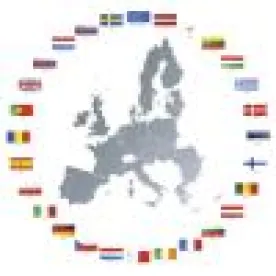ANTITRUST AND COMPETITION
Consultation on the European Commission’s Proposal for a Temporary Crisis and Transition Framework
On 1 February 2023, member states of the European Union received a consultation on a draft proposal to alter the current state aid temporary crisis framework into a so-called temporary crisis and transition framework.
The proposed changes to the new framework include notably the facilitation of projects in renewable energy and industry decarbonisation in an effort to promote all renewable energy sources. Additionally, the European Commission (Commission) proposed to allow aid for less mature technologies (e.g., renewable hydrogen) without competitive bidding. By augmenting aid ceilings and simplified aid calculations, the new rules would also make it easier to provide incentives for investments that will purportedly lead to a large reduction of emissions. For example, aid would be determined as a share of investment costs.
Furthermore, the proposal addresses the productive investment gap in strategic sectors and permits support from member states for the production of batteries, solar panels, wind turbines, heat pumps, electrolysers, carbon capture usage and storage, and critical raw materials necessary for the production of such equipment, for example by allowing member states to match third country subsidy offers.
In that vein, as a major point of controversy, the new framework is designed to tackle aid offered in other regions of the world to attract investment (see the United States’ Inflation Reduction Act). To ensure that investments are made in the European Union, additional aid for certain projects would be possible where third countries offer competing aid. To qualify for this extra proportionate aid, projects must be located in areas where the GDP per capita is below 75% of the EU average or, alternatively, comprise investments in several EU member states.
In the coming weeks, member states will be able to comment on the Commission’s proposal. The temporary crisis and transition framework will be adopted following the feedback period. The new temporary rules will enter into force and be in place until 31 December 2025.
The Court of Justice of the European Union Upholds Dominant Companies’ Liability for the Conduct of Their Distributors and the Application of the Effects-Based Approach to Exclusive Dealings
On 31 October 2017, the Italian Competition and Markets Authority (AGCM) imposed a fine of approximately €60 million on a company (the Company) for an abuse of its dominant position in the market for sale of individually packaged ice cream for consumption “outside” (i.e., away from consumers’ homes at various sales outlets). The AGCM found that the Company included in its contracts with independent distributors exclusivity clauses that obliged them to obtain supplies exclusively from the Company for their entire individually packaged ice cream requirements. The distributors were also granted a range of rebates and commissions conditional on generating a specific turnover or sales of the Company’s products. This, according to the AGCM, amounted to a breach of Article 102 of the Treaty on the Functioning of the European Union (TFEU).
After the Company’s appeal was dismissed by the national court of first instance, the Italian Council of State (Italy’s top administrative court) asked the CJEU on 15 December 2020 to issue a preliminary ruling on the interpretation and application of EU competition law.
On 19 January 2023, the CJEU clarified that a dominant company can be held liable also for the conduct of its distributors under Article 102 of the TFEU if it is established that the conduct was not adopted independently by its distributors but forms part of a policy decided unilaterally by the dominant company and implemented through these distributors.
The CJEU also stated that national competition authorities (NCAs) do not necessarily have to demonstrate that a contested conduct produced anti-competitive effects. It is sufficient to establish that a conduct is capable of restricting competition despite its lack of effect. The CJEU, however, highlighted that this must be based on tangible evidence since the existence of doubt must benefit the company. Consistent with its case law, the CJEU held that the submission of evidence capable of demonstrating the inability to produce restrictive effects has to be assessed by NCAs. Therefore, the companies’ economic arguments showing no likelihood of foreclosure need to be taken into account by NCAs. The Italian Council of State must now review the Company’s appeal on the basis of the CJEU’s judgment.
The judgment clarifies that the conduct of distributors forming part of the distribution network of a dominant company may be imputed to that company. The judgment helpfully upholds the right of dominant companies to defend their exclusivity clauses on the basis of economic evidence that reveals the absence of anti-competitive effects stemming from such clauses and that authorities need to take these arguments into account in their assessment.
ECONOMIC AND FINANCIAL AFFAIRS
The European Parliament’s Economic and Monetary Affairs Committee (ECON) Greenlights Reports on Basel Reform
On 24 January 2023, the ECON committee adopted the reports on the amendments to the Capital Requirements Regulation and to the Capital Requirements Directive (together also known as Basel IV), both led by Jonás Fernández (S&D, Spain), member of the European Parliament. The reports were adopted with 41 votes in favour, one against, and 14 abstentions, and 49 votes in favour, two against, and seven abstentions, respectively. On the same day, the ECON committee also adopted the decision to enter interinstitutional negotiations on both files; thus, the reports will represent the European Parliament’s position in trilogue negotiations for both legal texts.
Despite repeated calls from the European Central Bank not to deviate from the Basel approach, the European Parliament adopted a softer approach to Basel reforms than expected. For example, the European Parliament’s position supports the possibility to apply lower capital charges for low-risk mortgages during a transitional period (a maximum of four years). If all deviations (such as the lower capital requirements in transitional periods) make it into the final legislative package, the Basel Committee might label the European Union as “noncompliant” (i.e., the lowest possible grade).
The ECON committee agreed that the “output floor,” one of the central elements of the proposed reforms (a measure that sets a lower limit on the banks’ calculated capital requirements when using their internal models), should be calculated at the consolidated EU level, with the aim to have comparable risk weights and avoid variations in capital levels. Moreover, the European Parliament’s position suggests that national competent authorities should be competent to address inappropriate capital distribution among banking groups and should be able to propose capital redistribution.
When it comes to sustainability provisions, the ECON committee decided to support strengthened reporting and disclosure requirements for environmental, social, and governance risks in order to support the European Union’s sustainability goals and its objective to be climate-neutral by 2050. In this context, the European Banking Authority (EBA) would be given the mandate to assess whether a dedicated prudential treatment of exposures is needed.
With regard to crypto-assets, members of the European Parliament support the obligation for banks to disclose their exposure to crypto-assets and crypto-asset services. Moreover, banks will have to provide a specific description of their crypto-assets’ risk management policies.
Finally, the ECON committee also adopted a third-country branches regime supervision with the aim to ensure a level playing field in the European Union. In this vein, new third-country branches cannot start their activities in an EU country until the EBA and the relevant third-country authority have signed a memorandum of understanding setting out a cooperation framework.
The Council of the European Union adopted its position on both files on 8 November 2022. Therefore, trilogue negotiations are now set to start by the end of February 2023.
INTERNATIONAL TRADE
European Commission Publishes Draft Implementing Rules Supplementing the EU Foreign Subsidies Regulation and encourages informal discussions to streamline the notification process
On 6 February 2023, the Commission published highly anticipated draft implementing rules (Draft Implementing Regulation) detailing how the EU foreign subsidies regulation (FSR) will be applied. Annexed to the Draft Implementing Regulation are the draft notification forms for mergers (Annex 1) and for bids in public procurement (Annex 2).
From 12 October 2023, the FSR will require businesses contemplating acquisitions, mergers, and joint venture deals or participating in public procurement procedures in the European Union to notify the Commission of financial contributions they received from third-country governments if the FSR filing thresholds are met. If the Commission considers the financial contribution to be a subsidy that distorts the EU internal market within the meaning of the FSR, it may block the transaction, prohibit the award of a public contract, or impose redressive measures.
The Draft Implementing Regulation sets out: (i) the procedure for and content of notifications under the FSR, (ii) how the relevant time limits under the FSR are determined, and (iii) procedural rules on preliminary reviews and in-depth investigations in cases of suspected distortive foreign subsidies.
To avoid unnecessary notifications, the Draft Implementing Regulation encourages businesses to engage in prenotification contacts with the Commission and provides for the possibility to request a waiver of the requirement to submit a detailed notification.
To ease the burden on companies active in merger and acquisition activities of having to report even small financial contributions, the Draft Implementing Regulation also provides that financial contributions do not need to be disclosed if: (i) an individual amount is below €200,000, and (ii) the annual total amount per non-EU country and per year is less than €4 million. In the case of public procurement, a financial contribution from a non-EU country government does not need to be disclosed if its aggregate amount is less than €4 million per non-EU in the three years prior to notification. This information will help businesses to carry out a risk assessment as to their exposure and prepare for the entry into effect of the notification requirement since it narrows down the very broad thresholds at least to some extent.
The Commission is accepting feedback on the Draft Implementing Regulation until 6 March 2023 via its online portal.
TRANSPORTS
The EU General Court (GC) Annuls the European Commission’s Approval of Romanian Aid to Timișoara International Airport in Favour of Wizz Air (Case T- 522/20 Carpatair v Commission)
On 8 February 2023, the GC partially annulled the February 2020 decision of the Commission, which found that certain discounts and rebates granted in favour of Wizz Air by the state-owned Timișoara International Airport did not constitute state aid due to a finding of de facto favouring of Wizz Air.
The Commission had found that the measures in question—the discounts and rebates on the airport charges—were not selective in nature and the agreements concluded with Wizz Air did not confer an economic advantage.
The GC found that the Commission committed several errors of law by deciding that these discounts/rebates were not selective and did not confer an advantage to Wizz Air. By relying on EU settled caselaw, the GC held that even when state interventions prima facie apply to all undertakings, they may still be selective by de facto favouring certain undertakings. This is particularly the case when the formal criteria for the application of the measure are designed in general and objective terms, but the effect of the measure is to favour a specific group of undertakings.
In this case, the measures were applicable to all airlines using or liable to use Timişoara International Airport, including discounts on airport charges of up to 85% for aircrafts having a maximum takeoff weight above 70 tons with more than 10,000 embarked passengers per month. The GC found that these discounts de facto favoured Wizz Air because the vast majority of the aircrafts meeting these specifications were operated by Wizz Air.
ENVIRONMENTAL AFFAIRS
Green Deal Industrial Plan
On 1 February 2023, the Commission presented the Green Deal Industrial Plan for the Net-Zero Age (the Plan), an EU initiative aimed to increase European competitiveness through clean-tech investment.
The Plan sets out policy approaches and forthcoming actions in relevant areas, based on these four pillars:
-
Predictable and simplified regulatory environment.
-
Faster access to sufficient funding.
-
Skills.
-
Open trade for resilient supply chains.
As part of the first pillar, the Commission proposed to put forward a Net-Zero Industry Act to support industrial manufacturing of key technologies in the European Union, for example, through simplified and fast-track permitting. The Plan also refers to the Critical Raw Materials Act, a forthcoming initiative that will aim to increase access to relevant critical raw materials while lowering Europe’s dependence on third countries.
The second pillar of the Plan involves extended and accelerated access to funding for the clean-tech industry. In this vein, the Commission intends to allow more flexibility for member states to grant aid to address renewable energy deployments, decarbonising industrial processes, production of strategic net-zero technologies, and targeted aid for major production projects in strategic net-zero value chains.
Under the third pillar, the Plan aims to propose the establishment of Net-Zero Industry Academies to roll out up-skilling and re-skilling programmes in strategic industries.
Finally, the fourth pillar, related to open trade for resilient supply chains, lists new initiatives, including Clean-Tech/Net-zero Industrial Partnerships and the Critical Raw Materials Club, aiming to promote the adoption of clean technologies globally while supporting EU industrial capabilities. Under this pillar, the Commission also proposed to protect the EU market from unfair foreign subsidies that distort competition in the clean-tech sector.
Stefano Prinzivalli Castelli, Petr Bartoš, Vittoriana Todisco, Joanna Kulewska, Matilde Manzi, Mélanie Bruneau, Dr. Michael Hofmann, LL.M., and Rebecca Halbach also contributed to this article.







 />i
/>i

